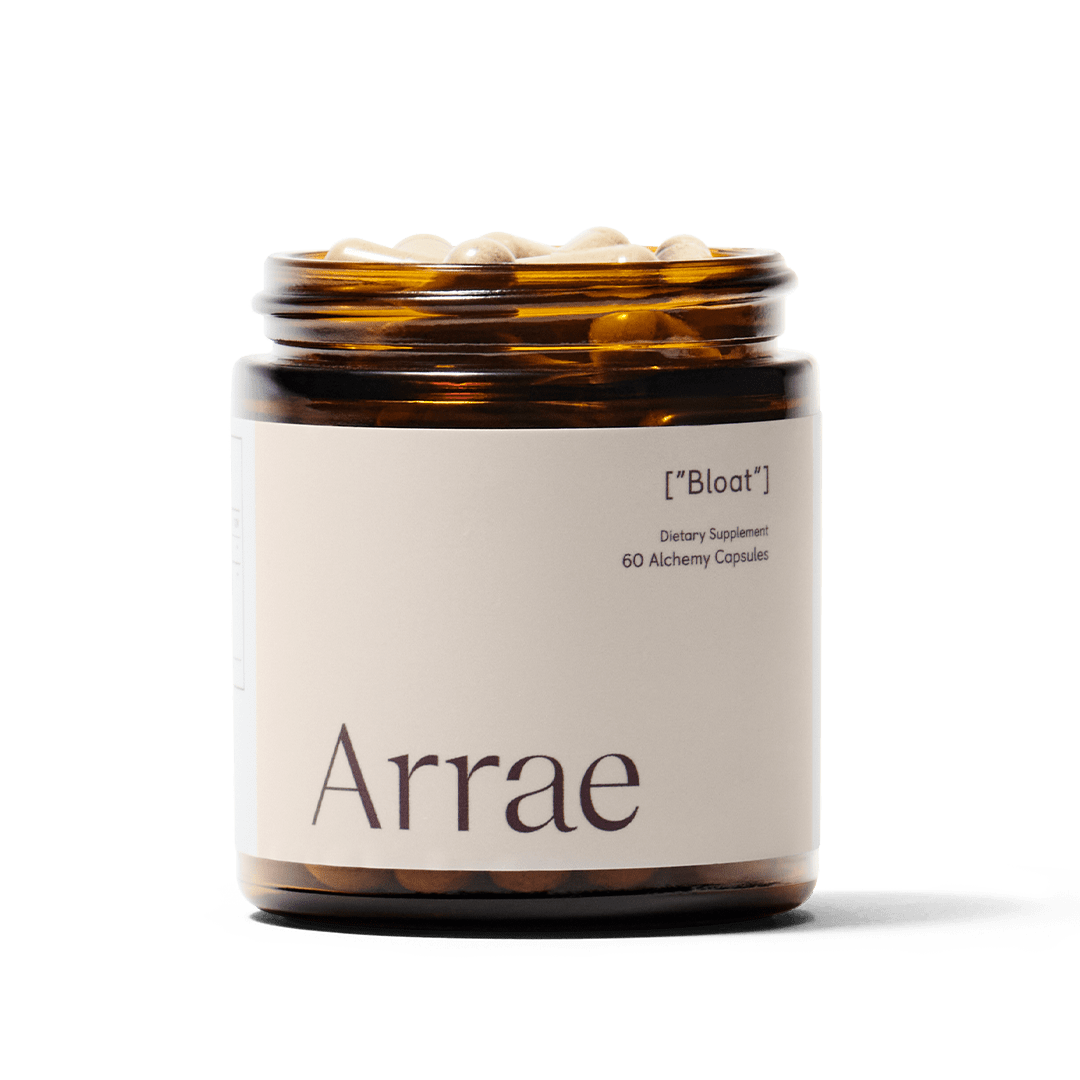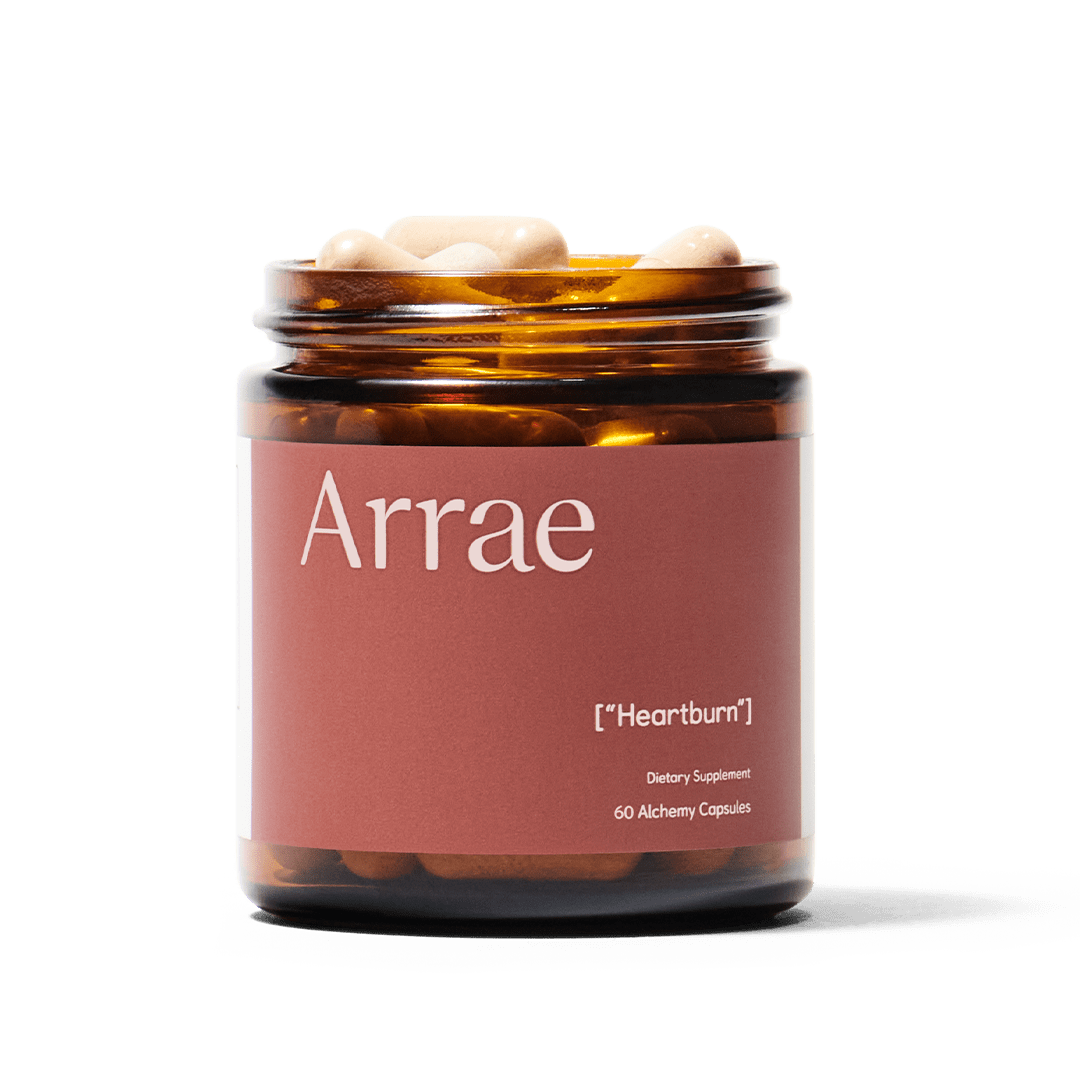
Digestion is one of the most important processes done by the human body. A properly functioning digestive system breaks down food into smaller molecules whose nutrients are then absorbed, stored, or used for fuel. Everything we eat gives us the ability to do basic daily activities (like walking and showering), a favorite workout class or a walk outside, and helps give us energy to spend time with people we love, doing the things we enjoy. Digestion requires multiple organ systems throughout its entirety, and when one system is off, due to a food we ate or simply just a flare up, the side effects can be, well, not so pleasant. In order to optimize digestion and feel our best, our bodies use naturally occurring digestive enzymes that are already present throughout these various organs. Digestive enzymes are released when we anticipate eating, smell or taste food, and begin and continue through the digestive process.
There are various instances when the body does not make enough enzymes on its own, thus making it challenging to digest food. Poor enzyme production can lead to deficiencies in nutrient absorption, resulting in a host of health problems. Some factors that impact digestive enzyme output include an excess consumption of foods that irritate the intestinal tract (like coffee, alcohol, and highly processed foods); physical, emotional, or psychological stress; pregnancy; and aging, which leads to a decline in enzyme production and digestive function.
When enzyme output is not sufficient, the digestive process cannot work optimally. This can lead to bloating, abdominal pain and discomfort, diarrhea, constipation, and an unbalanced gut microbiome. Supplementing with digestive enzymes has been shown to be useful in combating these symptoms; read on to learn more.
Digestive enzymes supplements have gained popularity recently for their ability to aid in digestion by stimulating the process and calming down our digestive tract. So, how do digestive enzymes work, what foods naturally contain them, and how does the Bloat by Arrae formula optimize digestion?
What are Digestive Enzymes and How do they Work?
Naturally occurring digestive enzymes (aka, the ones already present in our body) are proteins that our body uses to break down food and aid in digestion. Whenever we consume food, our body works tirelessly to extract nutrients, give us fuel to stay active, and excrete waste. Various organs in the body make digestive enzymes, such as the mouth, stomach, intestines, and pancreas. The pancreas is known as the “enzyme powerhouse” of digestion because it produces key digestive enzymes which break down carbohydrates, proteins and fats.
Digestive enzymes split up larger, complex molecules which make up the macronutrients in our diet–carbohydrates, proteins, and fats– into smaller ones. This allows the nutrients from these foods to be absorbed easily into the bloodstream and carried throughout the body through the circulatory system. A diet full of nutritious, whole foods (think whole grains, fruits, and vegetables) is the best way to ensure our digestive system is working properly. However, sometimes, our digestion needs a little help. Supplements that contain digestive enzymes, such as Bloat by Arrae, can maximize the effectiveness of these enzymes, leading to banished bloat and tummy troubles, and easier and better digestion.
What are the Different Types of Digestive Enzymes?
Amylase: Amylase is vital for digesting carbohydrates; it breaks down long, complex starch molecules into shorter, more simple sugars. It’s secreted by the salivary glands in the mouth and by the pancreas.
Maltase: Released by the small intestine, Maltase breaks down maltose, which is found in starchy grains, fruits, and vegetables, into glucose. Our bodies require glucose to use for energy.
Lactase: Lactase may sound familiar because of its food counterpart: lactose. Lactase helps the body break down lactose, a sugar found in milk and other dairy products. Lactase is produced and released by the cells in the intestinal tract. Lactose that is not absorbed is fermented by the bacteria in our gut, leading to gas and other digestive discomfort. A lactose intolerance, simply put, means that the body does not produce, or does not have enough, lactase enzymes.
Lipase: The fats in our diet need to be broken down, too. Lipase breaks down fats so they can be absorbed in the intestines or stored in the body. It’s produced in small amounts by the mouth and stomach, and in large amounts by the pancreas.
Proteases: There are various protease enzymes, but they all work to break down proteins. Proteins are long chains of amino acids that cannot be absorbed unless broken into smaller chains, known as peptides. These enzymes are produced in the stomach and pancreas.
Sucrase: The small intestine secretes sucrase, which breaks down sucrose (the sugar in table sugar) into fructose and glucose. By doing this, our body gets simpler, more easily digestible sugars, which are used for energy.
What Foods Naturally Contain Digestive Enzymes?
A variety of foods, especially tropical fruits and fermented vegetables, naturally contain high levels of digestive enzymes. It’s worth noting that heat can lessen or destroy these enzymes, so try new ways to incorporate these foods into your diet in their most natural form: raw.
Pineapple: The enzyme in pineapple is known as bromelain, and it helps us to digest protein, in addition to having an anti-inflammatory effect. Is this sounding familiar? Bloat by Arrae contains bromelain, making digestion easier and ridding the body of unwanted digestive issues.
Mango: Need another excuse to eat this juicy tropical fruit? Mango contains amylases, which help the body break down carbohydrates into simpler sugars. Look for a riper mango; the riper the fruit, the more enzymes it contains!
Avocado: This healthy fat packs a punch; it contains lipases, which help digest fat and move it around the body for use in various necessary processes. Try including it in a smoothie, a salad, or in your favorite guac recipe.
Kefir: Similar in consistency to Greek yogurt, kefir contains lipases, lactates, and proteases. The lactase helps to digest the fermented milk, making it more likely to be tolerated by some with a lactose intolerance.
Sauerkraut: Fermented foods are great for digestion. Sauerkraut contains lipases and proteases. Fermented foods develop other enzymes during the fermentation process, helping to feed the good bacteria in our gut.
Ginger: Ginger contains proteases, and also helps to stimulate digestion and ease nausea. It’s another ingredient in our Bloat Alchemy capsules, aiding in easy and smooth digestion.
Pro Tip: Both digestion and digestive enzymes require hydration in order to work optimally. So, make sure to hydrate adequately throughout the entire day.
Though digestion is a necessary part of life, it's not one that should cause us extra stress, anxiety, or unwanted bloating. But sometimes, our bodies need a little extra help to make sure the food we eat gets broken down, the nutrients are used, and we can properly excrete waste. The naturally occurring digestive enzymes already present in our bodies should do the job; but, if our belly needs some extra help, 2 or 3 Bloat capsules will do the trick. So, go ahead and enjoy that cheesy pizza or a big Brussels sprout and broccoli salad. No one’s stopping you; not even your digestion.
References:
“Digestive Enzymes and Digestive Enzyme Supplements.”Johns Hopkins Medicine, 10 Feb. 2022, https://www.hopkinsmedicine.org/health/wellness-and-prevention/digestive-enzymes-and-digestive-enzyme-supplements.
“What Are Digestive Enzymes: Natural Sources and Supplements.”WebMD, WebMD, https://www.webmd.com/diet/what-are-digestive-enzymes.



























